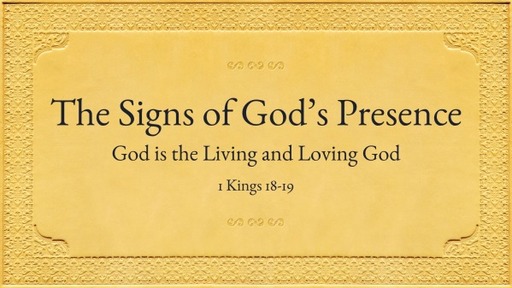The Signs of God’s Presence

Point 1: God moves the hearts of His [wayward] people to return to Him [whatever it takes](1 Kings 18:31-39).
These can be compared to some of the activities in which Baal is engaged in the Ugaritic texts. When the goddess Anat comes to look for Baal, she is told he has gone hunting. Ugaritic literature that portrays the death of Baal features the repeated strain that he needs to be awakened. The classical source used by Josephus, Menander of Ephesus, reports that the Tyrian king, Hiram, contemporary of David, instituted the ritual for the awakening of Herakles (=Melqart, see comment on 16:31). The mythology of the ancient world understood the gods to be involved in a variety of activities similar to those that engage human beings. Though Elijah’s words are meant to be taunts, they are not unrealistic depictions of Canaanite beliefs. The prophets of Baal would not have viewed his suggestions as ridiculous or unworthy of deity.